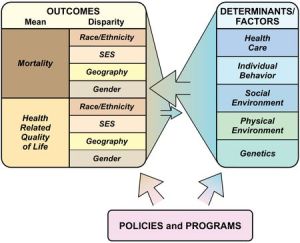I am probably not the first, nor will be the last white social worker to address the concept of White Privilege. Recent events have made me think deeply about this concept so here I go…
A few weeks ago renowned social worker Brene’ Brown and Activist Deray McKesson started a conversation on twitter. It started this way..
Some people live to see other people fail and that's sad. I've noticed that some people #onhere are just so negative. Find some joy folks.
— deray (@deray) August 21, 2016
But transitioned into the intersection of race and privilege ..
.@deray In 20 yrs at the most racially diverse university in the US, I’ve never seen more pain than when I teach shame + privilege.
— Brené Brown (@BreneBrown) August 21, 2016
.@BreneBrown, and how do you help your students process this pain in order to get to the other side? https://t.co/eOEaPtLILR
— deray (@deray) August 21, 2016
@deray The power is empathy+helping people understanding the diff between privilege shame (who they are)+guilt (what they do+can change)
— Brené Brown (@BreneBrown) August 21, 2016
The other highlight being Brene’ Brown agreeing with my thoughts…(really there were other highlights… I promise)…
YES!
— Brené Brown (@BreneBrown) August 21, 2016
In that moment, secondary trauma as a social worker became important but also the notion that we can grow from trauma arose. But can as white person can I ever truly understand the trauma happening in African American communities right now? That is where the notion of shame drops in and recent events made me think about “shame”. As a person with privilege, should I feel shame or discomfort for wanting to do something about the racial narrative?
Fast forward to recent events of the Quarterback of the San Francisco 49’ers, Colin Kaepernick, deciding not to stand for the national anthem. He did this out of protest for African Americans who have lost their lives at the hands of police. There was a lot of rage and shaming him for these actions. There was outrage directed at him for making 61 million dollars per year but feeling that he is protesting for the oppressed. Can an African American who makes 61 million per year can he truly speak for the oppression happening in the African American communities? People were asking “does he have the right to speak for the oppressed” ? There was even question of his lighter skin tone and if he has “the right to protest” on these grounds. With this twitter fought back with #KapSoBlack…
I just want to oil his scalp while he tells me his hopes and dreams. LOOK at this #BlackExcellence. #kapsoblack pic.twitter.com/5u9L65wGxX
— April (@ReignOfApril) September 2, 2016
Clearly there are disturbing parts of the racial narrative in this country. I would like to think we have made progress with racism, but we have a long way to go. What can we do to bend the needle to change this? Seems like we can’t get out of our own way privilege is a an interesting barrier. Why was Kaepernick’s “right to protest” called into question? Why was he shamed for protesting? This seemed to be about his perceived privilege. It made me think, as a white social worker with money what “right to protest” or speak up do I have? Should I feel shame for doing so?
Kaepernick’s protest forced me to do “the work” that Deray was talking about. In thinking about privilege and my social work practice, I went a little more strength-based (shocker for a social worker). Also I have been reflecting on Brene’ Brown’s use of the word shame.
Home visits in impoverished areas are part of my job. I have a beautiful home and I consider this a privilege. I have two college degree’s, this is also a privilege. The homes that I visit are not always as nice. They are often having difficulties accessing a primary education for their disabled children. This is something I don’t and should not take lightly. Should I feel shame and guilt about this difference?
Putting a more positive spin on the word I consider the invitation to their home as a privilege. They are in crisis of some kind, but why should they let me in the door? Why should they trust I will do right for them. The answer…
It is about the relationship…Relationships are important but they can often be the great equalizer. Through trust, dialogue, and co-producing a plan I am able to change this. It is about being vulnerable and acknowledging differences that “the work happens”. This is true on a micro-practice level. This also can happen at the community.
.@deray Yes. But so teachable and people are so hungry for it. This is the teaching that those who benefit from power-over fear the most.
— Brené Brown (@BreneBrown) August 21, 2016
I recommend that you read the whole dialogue between Brene’ Brown and Deray McKeeson FOUND HERE... This is also a great example of how a micro conversation can potentially drive change at a larger level.
This demonstrates the ability to recognize differences and flip “privilege” on its head. Lets acknowledge our differences, be vulnerable, develop relationships, and hopefully create some meaningful change along the way.
